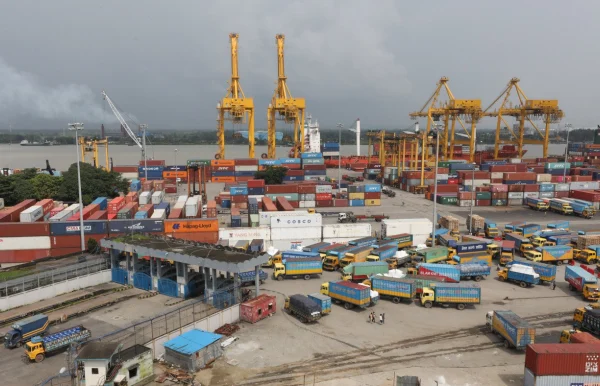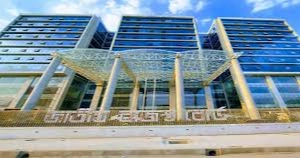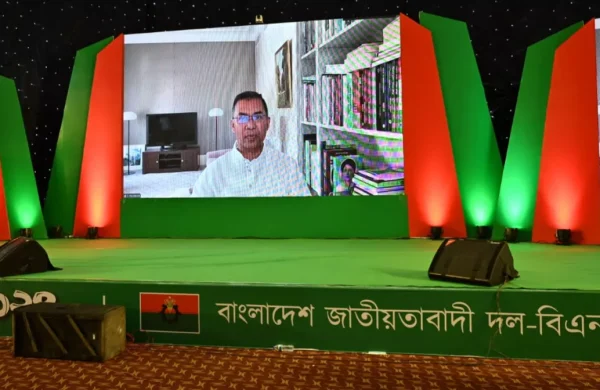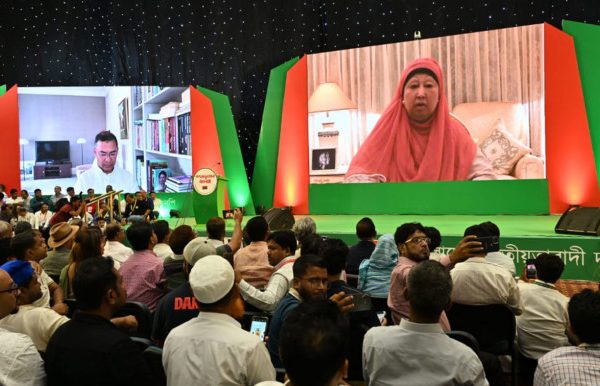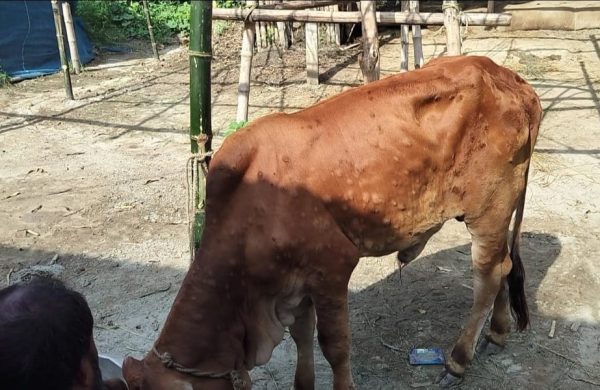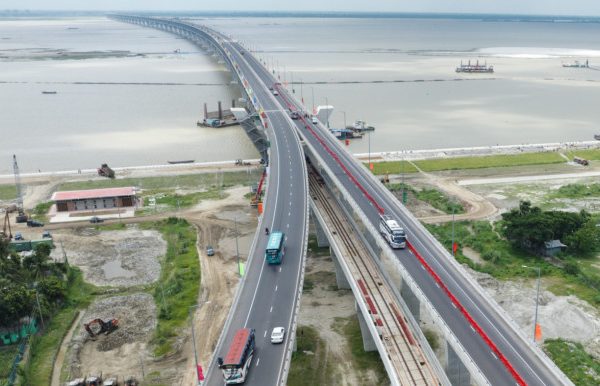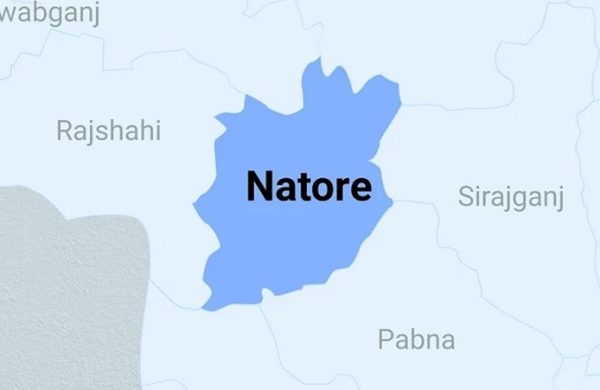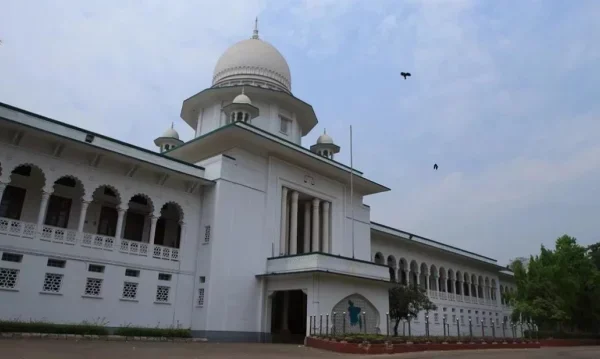Soaring food prices: How far fixed-income groups can tighten belts?
- Update Time : Thursday, May 23, 2024

Staff Correspondent:
Al Amin, a bus helper in Dhaka city, struggles to make ends meet with his family of four, including his wife and children. The situation has worsened recently, as a significant portion of his monthly income of Tk13,000-15,000 is consumed by high food prices, leaving him with almost nothing after paying rent.
He cannot afford to buy anything beyond essential items and is unable to spend extra on his children due to soaring food prices.
Al Amin is among tens of thousands of people with fixed or low incomes who are reeling under high prices, with the country’s food inflation hitting double digits.
In Dhaka’s kitchen markets, the prices of staple vegetables have skyrocketed. Potatoes, a common household item, are now selling for Tk55-60 per kg in kitchen markets, including in Rampura, Badda, Segunbagicha, and Karwan Bazar. It is double the regular prices.
Green papaya, usually priced at Tk25-30, has more than doubled to Tk60-70, with prices surging even higher to Tk90-100 in the past few days.
Even vegetables like luffa gourd, eggplants, and yardlong beans are difficult to find for less than Tk80 per kg. Onions have joined the price surge, currently selling at Tk75-80.
Imran Hossain Master, president of the Bangladesh Kanchamal Arot Malik Samity (vegetable wholesalers’ association), said vegetable prices are typically somewhat high during this season. However, compared to the last two years, prices are a little steeper this time around.
Buyers and sellers report that the rising cost of goods is squeezing people with limited incomes. Many have been forced to cut back on their food consumption, while others are depleting their savings to make ends meet.
Al Amin, who works as a helper for Bihongo Paribahan, in front of its Mirpur counter, spoke about the impact on low-income households.
“Potatoes, eggs, and pulses are staples for poor people like us,” he said. “Now, even potatoes cost more than double the usual price. I can’t remember the last time I could afford beef. Broiler chicken prices are high too, and eggs have gone up by Tk15 per dozen.”
In the past, Bangladesh’s robust storage system helped maintain stable potato prices throughout the year, typically within a range of Tk20-35 per kg. Prices would only rise slightly towards the very end of the production season.
However, last year’s two cyclones significantly impacted potato production, leading to a current supply shortage and the current price surge.
Mostafa Azad Chowdhury, president of the Bangladesh Cold Storage Association, said low potato production has left most cold storages with up to 20-25per cent less stock compared to usual. He added that the price at which potatoes enter cold storage has also jumped, from Tk11-12 per kg in previous years to Tk30-31 currently.
The market analysis data of the Trading Corporation of Bangladesh (TCB) reveals that potato prices are a staggering 37.33per cent higher compared to the same period last year. However, sellers haven’t provided any explanation for this significant price increase.
The situation isn’t any better with rice. Despite being in the midst of the Boro season, the country’s biggest paddy harvest period, there’s no sign of rice prices coming down.
Coarse rice remains expensive at Tk53-54 per kg, while fine rice can cost as much as Tk75. Even some medium quality rice is priced above Tk60. According to TCB, coarse rice prices are 8.33per cent higher, and fine rice prices are 6.80per cent higher compared to last year.
Even protein sources like broiler chicken and eggs haven’t been spared. Broiler prices have climbed from Tk190 per kg a year ago to Tk215-220 currently.
Eggs, previously priced at Tk120-130 per dozen, now cost Tk155-160. While buying four eggs at a time drives the price up to Tk55. The situation is even direr for beef, which is priced at a staggering Tk780-800 per kg, completely out of reach for many low-income earners.
Abdul Gafur has been pulling a rickshaw in Mirpur DOHS for the past three years to support his family – his wife and daughter. He lost his previous job during the pandemic.
Gafur pays Tk230 per day to the rickshaw owner. His earnings on top of that are around Tk500-600, but this fluctuates. It’s simply not enough to make ends meet in today’s market.
After paying rent, there’s barely anything left. He can only afford a kilogramme of rice each day, along with some basic vegetables and eggs. His daughter longs for fish and meat, but those are luxuries he can’t afford to provide.
A recent World Food Programme (WFP) report on Bangladesh’s commodity prices paints a grim picture. Food expenditure per family skyrocketed to Tk2,923 in February, a staggering 58per cent increase compared to just two years ago.
To cope with this rising cost pressure, a significant portion of the population (68 per cent) has been forced to cut back on essentials to survive. The WFP report further details how the remaining households are coping: 43 per cent are prioritising buying food, 22 per cent are being forced to cut back on medical expenses, and 13 per cent are having to dip into their savings. Unsurprisingly, this burden falls most heavily on low-income families.
This reality is evident at Bangla Motor’s Bismillah restaurant, frequented primarily by low-income customers. Gias Uddin, the restaurant manager, laments, “The number of customers who order fish and meat has been steadily declining. We’re forced to raise prices due to our own increased purchase costs, and as a result, sales and our income have also dropped.”
Md Farooq, a CNG driver who frequents the restaurant, echoes this sentiment. “Fish is now a luxury,” he says. “A couple of years ago, I could get fish curry for Tk50-60. Now, it’s well over Tk100. I’m mostly limited to rice and eggs, which are also getting more expensive depending on the area. Eggs can cost anywhere from Tk30-35 now.”


